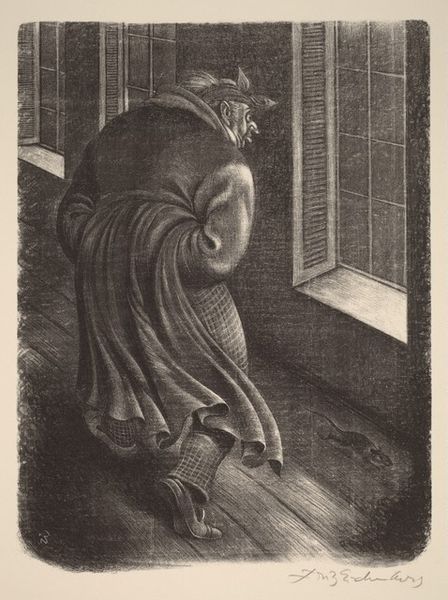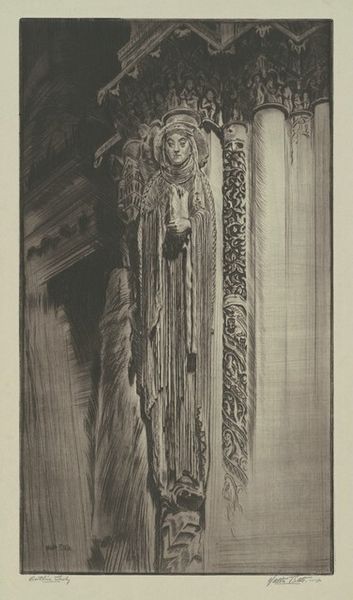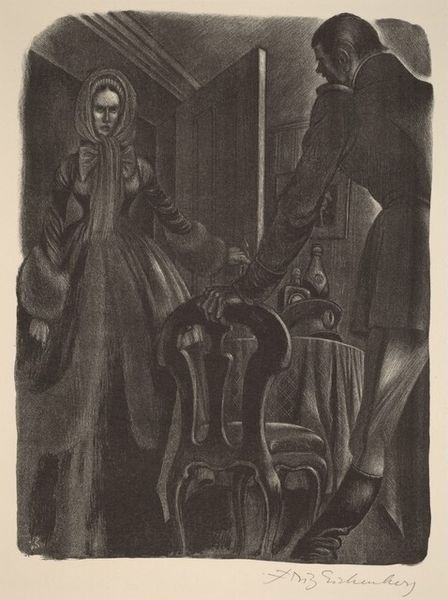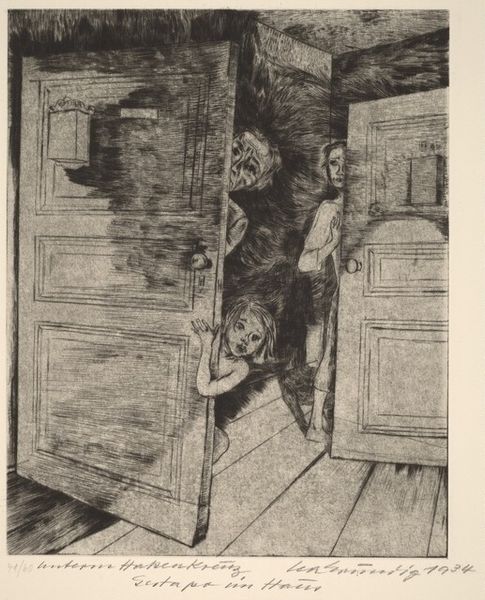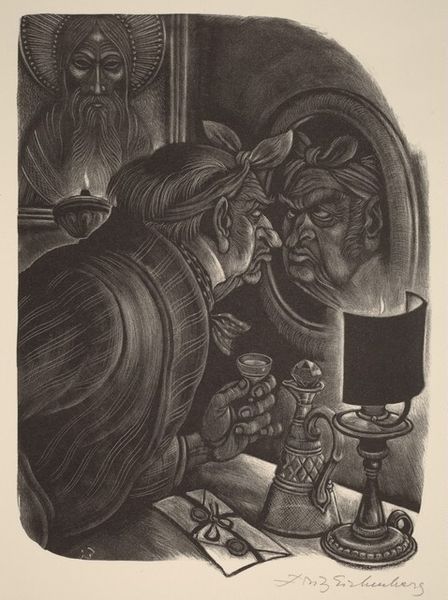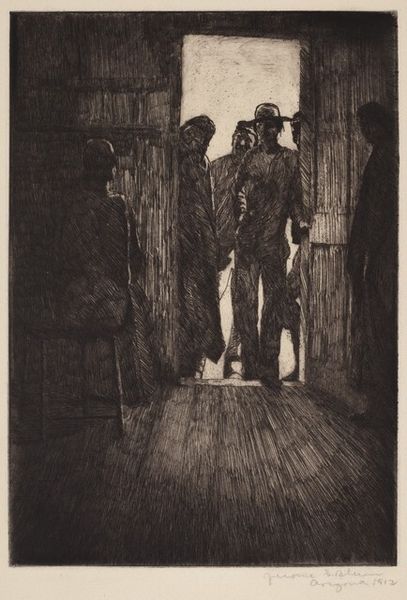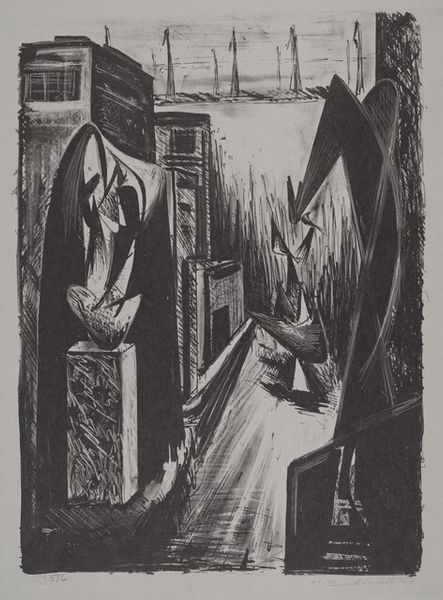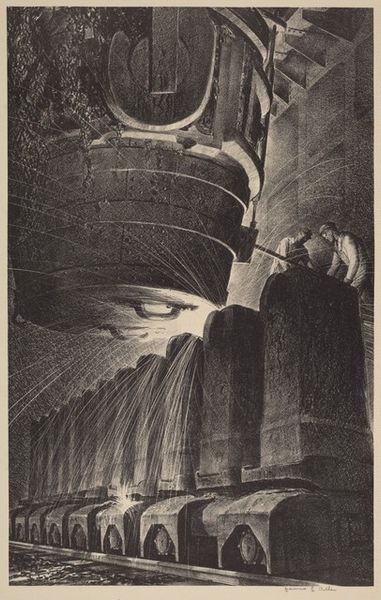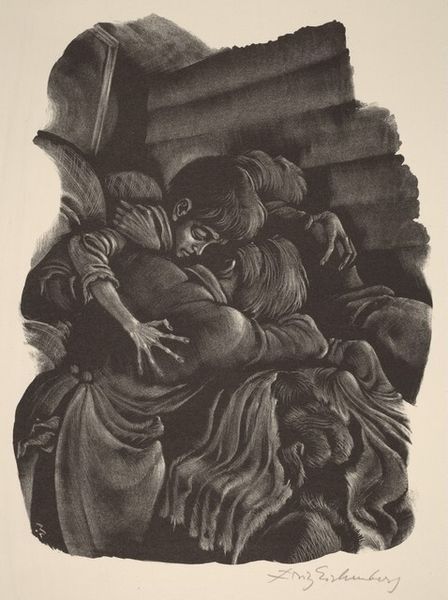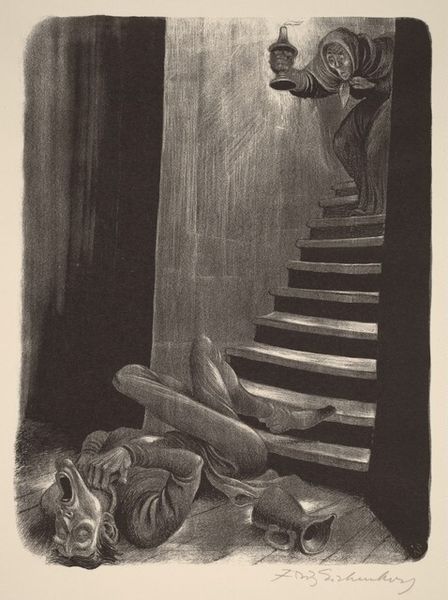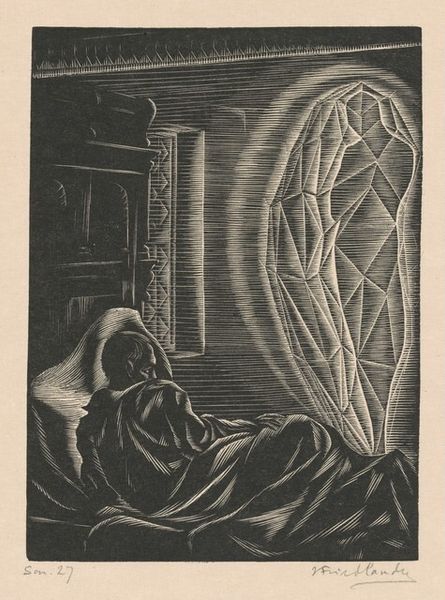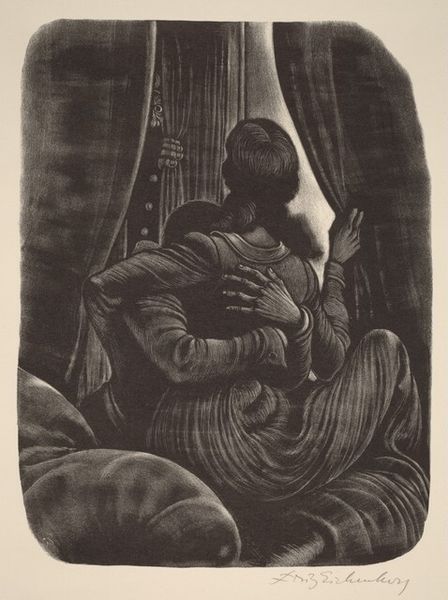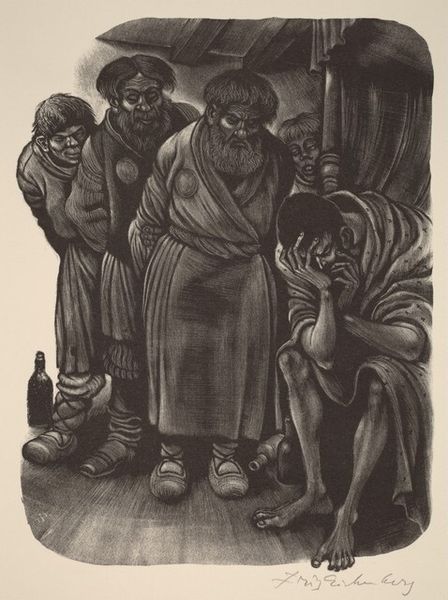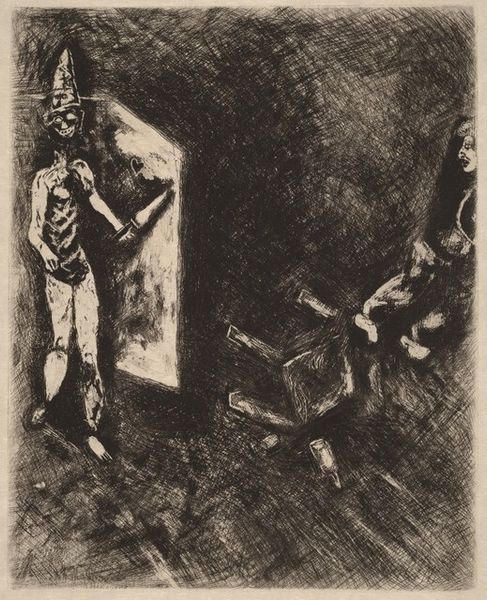
The Grand Inquisitor (Book V: Pro and Contra, facing p.190) 1949
0:00
0:00
drawing, print
#
drawing
# print
Copyright: National Gallery of Art: CC0 1.0
Curator: Alright, let's talk about this unsettling image by Fritz Eichenberg from 1949, a print titled "The Grand Inquisitor." Editor: Unsettling is right! My first thought is how oppressive it feels. The high contrast and cramped composition just create a sense of dread, like something terrible is about to happen. Curator: Exactly! Eichenberg has this incredible talent for turning philosophical questions into intensely visual experiences. This piece is actually an illustration from Dostoyevsky's *The Brothers Karamazov*. The "Grand Inquisitor" is a parable within the novel. Editor: Ah, that adds layers. So, the looming face, it isn't just a scary guy, but a representation of ideological power, right? The way it's superimposed, almost bleeding into the staircase and the robed figure—it suggests that the Church’s power permeates every level of existence. And look at the monk! So burdened and yet complicit, locking that door... Curator: Precisely. The monk’s gesture—locking the door—speaks volumes about control and suppressed freedom. Eichenberg used incredibly detailed lines in his drawings and prints. Look how the lines converge to create dark, somber areas that evoke this sense of dread that you've described. He creates palpable textures that mimic both stone and flesh in that face. I can almost smell the musty air of the dungeon. Editor: Absolutely, there's a weightiness here. And I keep coming back to the staircase behind the Inquisitor’s face. It hints at depth, maybe a descent into something even darker. To me it shows that these systems of power always promise something "better," even as they bury truths. Curator: Dostoyevsky's and Eichenberg's perspectives make you question if earthly authority is truly separate from divine ideals or an extension of power cloaked in virtue. It makes you consider that, maybe, true freedom means accepting responsibility without the solace of dogma. It still resonates profoundly today, which, I think, speaks to the genius of Eichenberg. Editor: It really does. Seeing this image through a lens of power, especially religious and political power, makes it less about simple faith, more about structural control, especially because so many people continue to defend such obvious mechanisms of control. Thank you. Curator: A dark truth revealed indeed.
Comments
No comments
Be the first to comment and join the conversation on the ultimate creative platform.
